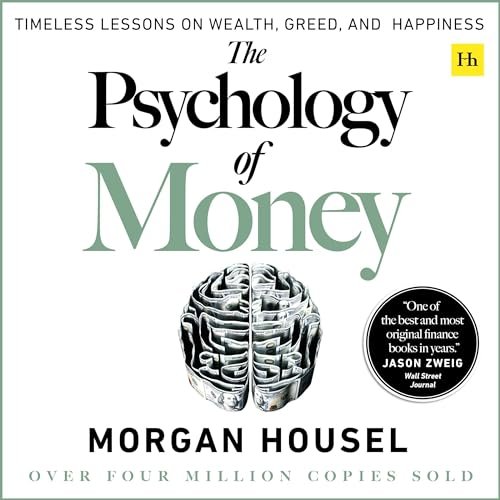Title: Unveiling the Psychology of Money: Timeless Insights into Wealth, Greed, and Happiness
Money holds a curious grip on the human psyche. It is not merely a medium of exchange but a mirror reflecting our deepest desires, fears, and values. The interplay between money and the human mind is a labyrinthine journey, fraught with complexities and contradictions. In “The Psychology of Money: Timeless Lessons on Wealth, Greed, and Happiness,” we embark on an exploration of this intricate relationship, seeking to unravel its mysteries and glean timeless wisdom.
At the heart of our monetary behavior lies a delicate balance between rationality and emotion. While economic theories often depict individuals as rational agents driven solely by self-interest, the reality is far more nuanced. Our financial decisions are often colored by a myriad of psychological factors, from cognitive biases to emotional impulses. Understanding these underlying forces is key to navigating the turbulent waters of personal finance.
One of the central themes that emerge from “The Psychology of Money” is the concept of wealth beyond numbers. Traditional metrics of financial success, such as income and net worth, offer only a partial glimpse into one’s prosperity. True wealth encompasses a broader spectrum of assets, including relationships, health, and personal fulfillment. By shifting our focus from material accumulation to holistic well-being, we can cultivate a more meaningful and sustainable relationship with money.
Greed, the insatiable desire for more, looms as a perennial shadow in the realm of finance. From the tulip mania of the 17th century to the speculative frenzies of modern markets, history bears witness to the destructive power of unchecked avarice. “The Psychology of Money” delves into the psychological underpinnings of greed, shedding light on its origins and consequences. Through introspection and self-awareness, individuals can guard against the seductive allure of greed and pursue a path of moderation and contentment.
Yet, amidst the complexities of human behavior, there exists a beacon of hope: the pursuit of happiness. Contrary to popular belief, wealth alone does not guarantee happiness; rather, it is the alignment of our financial choices with our values and aspirations that leads to fulfillment. “The Psychology of Money” underscores the importance of prioritizing experiences over possessions, generosity over accumulation, and gratitude over entitlement. By embracing a mindset of abundance and gratitude, we can cultivate a sense of well-being that transcends monetary measures.
In essence, “The Psychology of Money” serves as a timeless guidebook for navigating the intricate terrain of wealth, greed, and happiness. Grounded in psychological insights and enriched by real-world anecdotes, it offers a roadmap for individuals seeking to cultivate a healthier relationship with money. As we embark on this journey of self-discovery, may we heed the wisdom contained within these pages and forge a path towards financial enlightenment and emotional fulfillment.
The Psychology of Money

Money – investing, personal finance, and business decisions – is typically taught as a math-based field, where data and formulas tell us exactly what to do. But in the real world people don’t make financial decisions on a spreadsheet. They make them at the dinner table, or in a meeting room, where personal history, your own unique view of the world, ego, pride, marketing, and odd incentives are scrambled together.
In The Psychology of Money, award-winning author Morgan Housel shares 19 short stories exploring the strange ways people think about money and teaches you how to make better sense of one of life’s most important topics
click the link